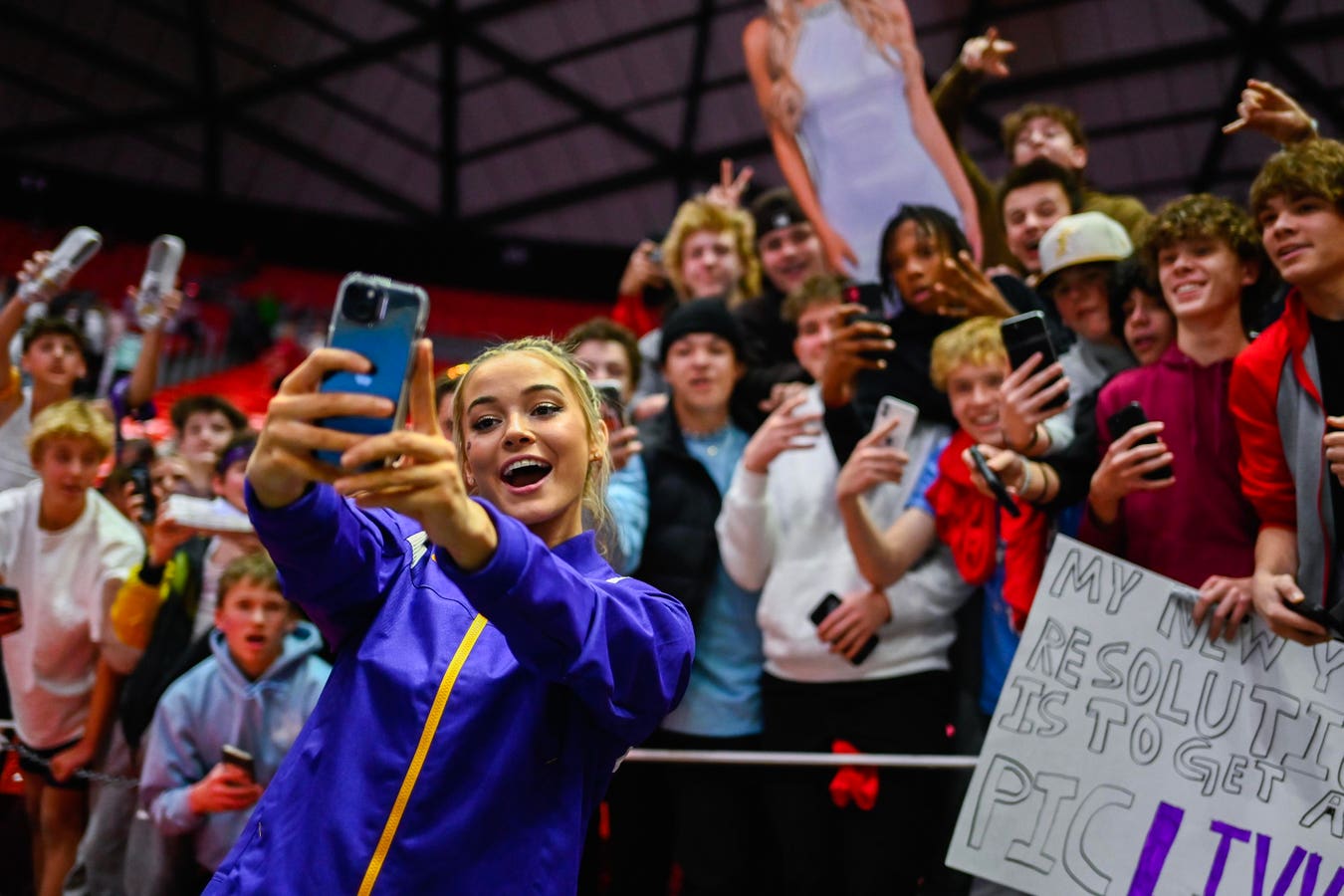WASHINGTON, DC – MARCH 13: Participants hold signs in support of TikTok outside the U.S. Capitol … [+] Building on March 13, 2024 in Washington, DC. The House of Representatives will vote Wednesday on whether to ban TikTok in the United States due to concerns over personal privacy and national security unless the Chinese-owned parent company ByteDance sells the popular video app within the next six months. (Photo by Anna Moneymaker/Getty Images)
A pivotal moment in the social media world unfolded Wednesday as President Biden signed a bill that could potentially lead to a ban on TikTok in the United States. The bill mandates that TikTok’s parent company, ByteDance, must divest its stake in the platform within 12 months, or face a ban.
For many, this news raises concerns about the future of the community of influencers and content creators who have built their careers and businesses on TikTok.
Among them are individuals like Ashlyn Greer, Founder/CEO of Fashivly, a digital personal styling company with 128,000 TikTok followers, and Megan Druckman, Founder of Lola Saratoga, a pre-owned luxury handbag company with 44,000 followers on the app. Both have seen incredible success through their TikTok presence, leveraging the platform as a vital marketing channel.
Greer explains, “TikTok is actually our primary marketing channel for our fashion tech/commerce startup. We aren’t as directly tied to TikTok itself through brand partnerships or sponsored content like some other creators, but our reach there from our organic content is what has fueled our business growth for the last 2 years.”
Druckman echoes this sentiment, noting the significant role TikTok has played in her business’ growth. She shares, “Over the past year we have experienced significant success on TikTok, propelling our small, women-owned business into the spotlight thanks to the platform’s remarkable opportunities.”
It’s not just TikTok small business owners who are feeling the effects. Carly Chamerlik (@carlychamerlik, 10k TikTok followers), a travel and lifestyle content creator, expresses concerns about the platform’s stability amidst the looming threat of a ban.
“While the progress on putting the potential ban in place has been slow, I’ve continued making TikTok content but have been deterred from posting as much as I used to,” she tells me.
“It’s hard to ignore that this platform feels unstable,” says Chamerlik.
Similarly, Rachael (@routinesbyrachael, 125k TikTok followers), a health and wellness creator, acknowledges the potential implications for her content creation business. She relies heavily on the platform for brand collaborations and revenue generation, but she’s still feeling skeptical about the ban as a whole.
“As a creator, we are always adjusting to new trends, social media platforms, and updates,” Rachael says. “The TikTok ban has been threatened for years now, so it feels a little like Chicken Little ‘the sky is falling’. Until I see it, I don’t believe it.”
Sandra Macedo (@ryderthedal, 153k TikTok followers), a pet creator with a substantial following on TikTok, emphasizes the need for diversification amidst uncertainty. “If the ban occurs, I will need to shift my focus to other platforms,” she says. “As a full-time content creator, this ban will greatly affect my income from brand deals, the Creator Fund, and the traffic sent to our Amazon Storefront.”
Macedo told us that she currently is under contract for $13,850 worth of TikTok collaborations to be posted in the next few months. While the platform will not be banned within that period of time, this is still a significant amount of her income to forfeit if a ban is put in place.
Austen Tosone (@austentosone, 25k TikTok followers), a fashion and beauty creator, shares a similar point of view, highlighting the broader implications of a TikTok ban on free speech and social media innovation. “TikTok has empowered hundreds of thousands of people to become creators,” Tosone remarks. “As a full-time content creator, I can’t rely on any one platform to earn a living.”
In light of these concerns, creators like Tosone advocate for diversifying revenue streams and exploring alternative platforms. “I would highly encourage creators who view TikTok as their primary posting platform to share content on other platforms as well,” Tosone suggests. “And also look into revenue streams beyond brand partnerships.”
As the future of TikTok hangs in the balance, one thing remains clear: the impact of a potential TikTok ban stretches far beyond the confines of the app, shaping the livelihoods and aspirations of creators around the world.
As creators and digital business owners have in the past when other apps and even personal blogs have diminished in popularity or have been removed completely, creators and entrepreneurs alike will undoubtedly persevere.



